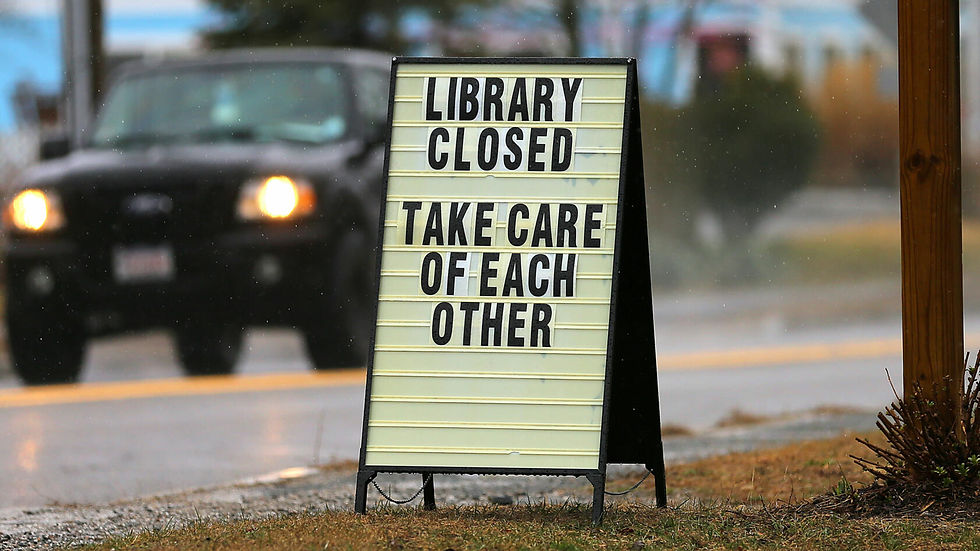The Lost Art of Reading: Nurturing Intellect in a Digital Age
- Santhosh Sivaraj
- Oct 9, 2023
- 3 min read

In an era dominated by technology, where information is readily available at our fingertips, the significance of reading books has gradually waned. Many believe that a person's intellect is intricately linked to their reading habits. Reading not only provides an avenue for knowledge acquisition but also offers a unique opportunity for introspection and critical thinking. This belief is substantiated not only by anecdotal evidence but also by scientific studies, which highlight the cognitive benefits of reading over visual screen consumption.

Reading has long been regarded as a cornerstone of intellectual development. It serves as a means to access a vast reservoir of human knowledge, offering insights into diverse subjects, cultures, and perspectives. Books provide a platform for individuals to engage with complex ideas and ponder over them at their own pace. Unlike the fast-paced, superficial nature of visual media, reading allows for a deep and patient exploration of concepts, fostering critical thinking and analytical skills.
Scientific research supports the idea that reading enhances intelligence. Numerous studies have shown that reading stimulates brain activity, improves vocabulary, and enhances comprehension skills. Moreover, reading is associated with increased empathy and emotional intelligence, as readers are exposed to different characters and their experiences, which can lead to a better understanding of human nature. In contrast, excessive consumption of visual media, such as videos and social media, tends to be more passive, leaving little room for active reflection or critical analysis.

Consider the case of the internet, with its myriad distractions and bite-sized content. The rise of platforms like TikTok and Instagram Reels has created a culture of instant gratification, where users seek quick entertainment in the form of short videos. While these platforms undoubtedly have their merits, they often prioritize brevity and sensationalism over depth and substance.
In this environment, the habit of engaging with longer, thought-provoking written material is on the decline. The fleeting nature of social media content discourages users from investing time in intellectually stimulating pursuits like reading.

Moreover, the relentless barrage of information on the internet can be overwhelming. People are constantly bombarded with news, updates, and notifications, leaving little mental space for sustained reading. This constant stream of digital information has given rise to a phenomenon known as "information overload," which makes it difficult for individuals to focus on extended reading sessions.
One real-life example of the decline in reading habits is the dwindling popularity of physical bookstores and libraries. Many independent bookstores have struggled to survive in the face of online retailers and e-books. Libraries, once bustling hubs of intellectual activity, have seen a decrease in foot traffic as people turn to digital media for their reading needs. This shift in consumer behavior is indicative of a broader trend away from traditional reading practices.

Another example is the educational sector, where the attention span of students is diminishing due to their exposure to screens from a young age. Teachers often grapple with the challenge of getting students to read books cover-to-cover, as students increasingly prefer easily digestible digital content. This shift in reading habits not only affects academic performance but also hampers the development of critical thinking skills.
To address this decline in reading, it is crucial to emphasize the importance of nurturing reading habits from a young age. Parents, teachers, and communities should encourage children to explore the world of books and literature. Schools can incorporate reading programs and libraries into their curriculum, fostering an environment where reading is valued and celebrated.

In conclusion, reading plays an indispensable role in shaping intellect and nurturing cognitive abilities. While the digital age offers many conveniences and forms of entertainment, it should not come at the cost of abandoning the profound benefits of reading. To combat the decline in reading habits, society must recognize the value of reading, promote it as an essential skill, and create spaces where individuals can indulge in the timeless pleasure of a good book.
Let us not forget that everything that ever happened ends up in a book, and every unread book represents a missed opportunity to live another life, gain new perspectives, and expand our intellectual horizons. In the age of TikToks and reels, let us be the guardians of the written word, preserving and passing on the legacy of reading to future generations.


Comments